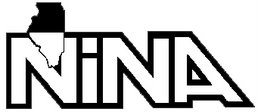In the midst of a lot of doom-and-gloom talk about the future of journalism, we are graduating a dozen or so students next week who want to get into the biz. Yesterday, I watched a NewsU Webinar called "Getting Your First Journalism Job," by Colleen Eddy of the Poynter Institute and Joe Grimm of the Detroit Free Press. Here are a few notes:
Cover letter
The cover letter MUST address the employer’s needs – not yours. If you are answering a job posting, take note of the qualifications they list and then use the cover letter to show them how you match those qualifications.
Practice a phone script – never get caught off guard if someone calls you back. Have a quick speech ready for when they say, “Tell me about yourself.”
Resume
One of the biggest attention-getters you can have on your resume is experience in multimedia journalism. If you or your paper has won awards and you’ve contributed to that effort, make sure that’s on your resume.
Other resume tips:
- Action verbs that show results achieved and a demonstrated growth pattern
- Clean, clear presentation – judicious use of white space, 11-12 point font (10 point is too small to be read easily by anyone over about 40)
- 1 page, unless you have 10 or more years of experience
- Your name at the top, in big, bold type
- Permanent e-mail and phone number
- A professional-sounding e-mail address
- Test your resume to be sure it photocopies well
An objective is not recommended. It can disqualify you if it’s too specific. Specific objectives are best left for the cover letter. Instead, use a summary line: a dynamic statement about yourself and your best selling points. Example:
"A proven journalist with a record of success in print reporting, editing and multimedia work. Strengths include newsroom management experience and investigative reporting skill."
Don’t put references on your resume. Employers don’t need them yet and it wastes space. Put them on a separate sheet.
A copy of your most recent performance review can serve as a reference, if you don’t want your current employer to know you’re looking for another job.
Clips
If you want to e-mail clips to someone, don’t send image files. They’re too big for some e-mail systems. The best solution is to send links.
A story written for a class is not worth sending if it was never published anywhere. The standard is published clips.
Build your own Web site, with links to your best work. This not only shows your clips, but also shows you can build a Web site.
The interview
Do your homework. Know about the employer, the leadership team, the competition, the company’s print and online history.
Be ready to answer questions like these:
- What are your strengths?
- What’s your biggest weakness?
- Have you ever failed at an assignment? How did you learn from it?
- Tell me about a time you tried and failed.
- Have your values changed over time?
- What’s the ideal job for you?
- Where do you need to improve?
- Have you ever been fired?
(look for opportunities to talk about how you learned from a mistake)
Ask your interviewers for their business cards.
After the interview
- Write an immediate e-mail thank-you note
- Then send a hand-written thank-you note. Those are difficult to ignore, and few people do them.
- After a few days, call or e-mail. “I’m interested. What can I expect next?”
Negotiating
You have a window: after they make an offer and before you accept it.
Get all the info you can, then take a little time before you say yes or no.
Know what’s negotiable: pay, vacations, moving costs, start date, training.
Know what’s probably not negotiable: insurance, retirement plan.
Resources
Joe Grimm’s “Ask the Recruiter” column
Colleen Eddy’s “Colleen on Careers" column
Thursday, May 8, 2008
Subscribe to:
Post Comments (Atom)


No comments:
Post a Comment